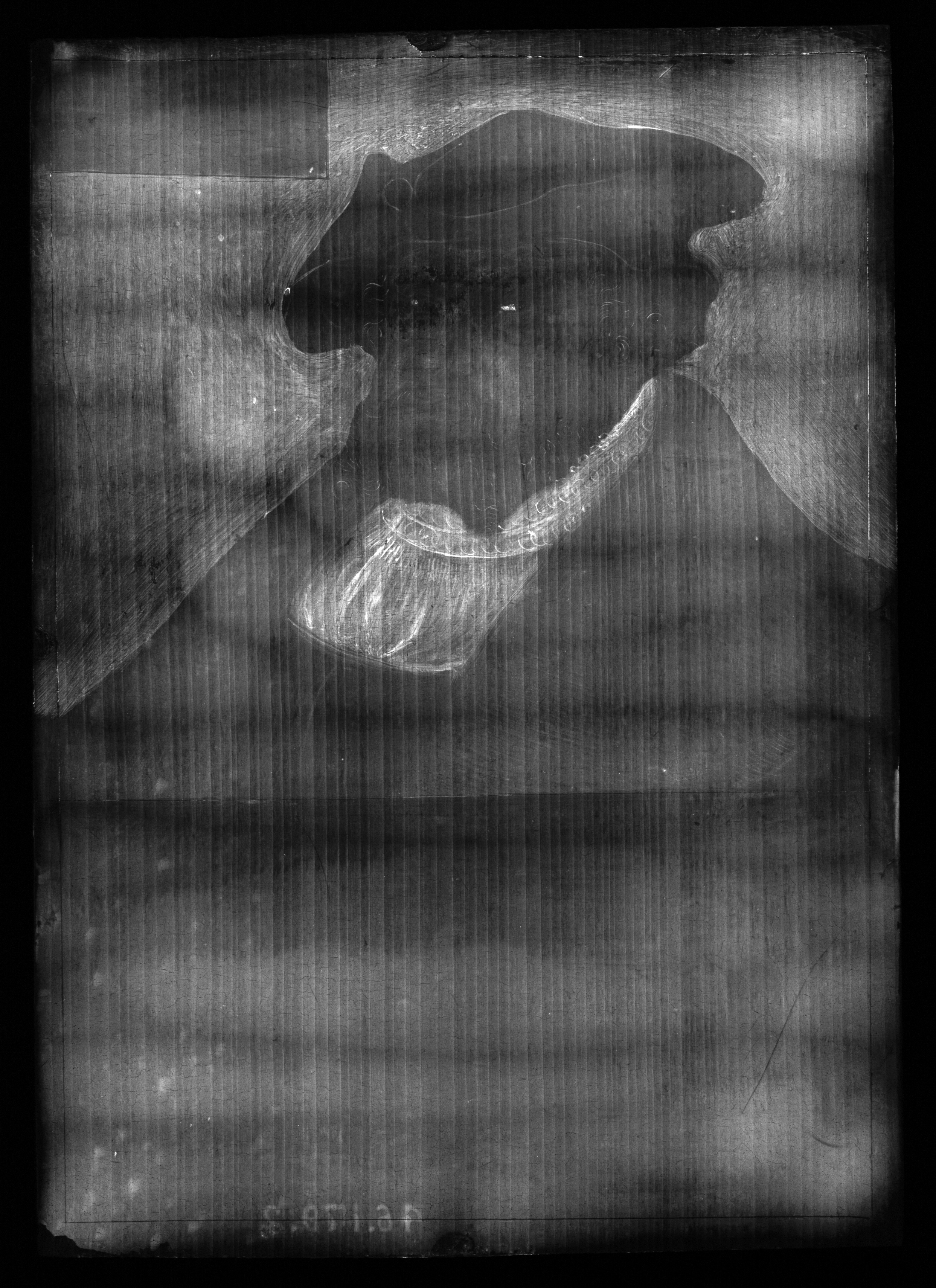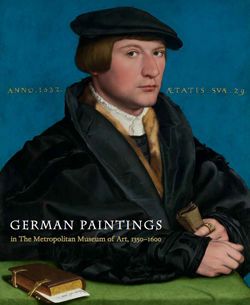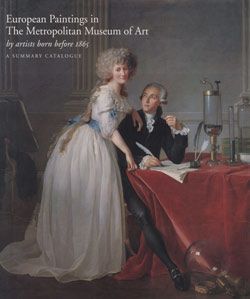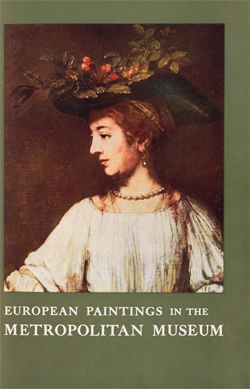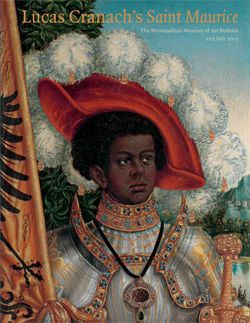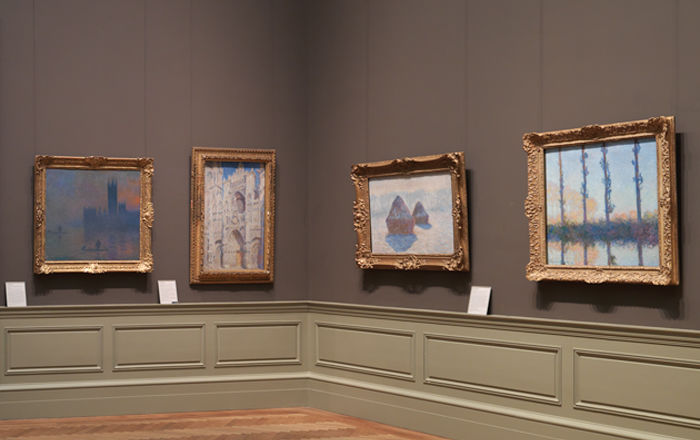This small posthumous portrait and that of Friedrich III, the Wise (The Met
46.179.1), belong to a series of sixty such portrait pairs of the brothers and Saxon electors that Johann I's son and successor, Johann Friedrich I, the Magnanimous (r. 1532–47), commissioned from Lucas Cranach the Elder in 1532. The commission coincided with Johann Friedrich's assumption of electoral office after the death of his father. An extant record of payment indicates that Cranach and his workshop completed the series in 1533. Many of the portraits from this series are still extant in public and private collections. The works also gave rise to a number of variants, such as the triptychs in the Germanisches Nationalmuseum, Nuremberg, and the Hamburger Kunsthalle, both datable to about 1535, which display larger portraits of Friedrich, Johann, and Johann Friedrich.
Because of the great size of the series, the content of the accompanying poems, and the religiopolitical position of Electoral Saxony in those years, it is thought that Johann Friedrich intended the portraits to serve as instruments of propaganda. He is presumed to have given them to other political figures in order to gain influence and support at a time of growing antagonism between Saxony and the Habsburgs. The Augsburg Confession, the fundamental doctrinal statement of the Lutheran Reformation, of which Elector Johann and Johann Friedrich were signees, had been submitted at the Diet of Augsburg in 1530 and was subsequently rejected by Emperor Charles V (r. 1519–56). Furthermore, at the beginning of 1531, both Johann and Johann Friedrich had opposed the election of Charles's brother, Archduke Ferdinand I, as king of the Romans. In February of that year, several Protestant princes and cities, led by Elector Johann and Philipp I, Landgrave of Hesse, founded the Schmalkaldic League to defend against potential Habsburg incursions. As a result, after Johann Friedrich took office in 1532, Charles V refused to invest him with the electoral title until 1535.
The 1532–33 portrait pairs appear to address this political situation through their poems, which were possibly composed by Martin Luther. These are printed on pieces of paper that have been pasted down on the panels. The texts emphasize the passage of Saxon electoral dignity from Friedrich to Johann, thereby implying the legitimacy of Johann Friedrich's electorate. Also, while invoking the electors' facilitation of Luther's religious reforms, the verses simultaneously attest to Friedrich's support of Charles V and to Johann's ultimate reconciliation with Charles after the controversy over Archduke Ferdinand's election as king of the Romans. In this way, the portraits convey a tactful message of electoral Saxony's resolution to protect its own political and religious interests while remaining loyal to the empire.
The overall compositional scheme of these works appears to derive from the engraved likeness of Friedrich that Albrecht Dürer made in 1524, which depicts the elector in a similar pose and attire above a fictive epigraphic tablet. The particular Friedrich type that Cranach employed for the series is based on one he developed by 1522 and reused in various formats. The long-established type for Friedrich served, in turn, as the model for the figure of Johann as it appears in the 1532–33 series.
The series exemplifies the speed and efficiency of which the Cranach workshop was capable. The modeling was carried out with a typical economy of means, and certain compositional and material elements, particularly the conformity of the figures' silhouettes and the use of printed texts, were clearly intended to speed production. The relative refinement of the Museum's pendant portraits sets them among the highest quality examples in the series. The portrait of Friedrich in particular, while conforming to the unified appearance of the group, displays a remarkably subtle handling. This is apparent when the painting is compared in detail with the still highly competent companion piece of Johann. Although the series is probably mostly the work of studio assistants, the possibility that Cranach himself contributed from time to time should not be discounted. This may well have been the case with the Museum's portrait of Friedrich and perhaps also with the comparable but somewhat less refined portrait of Johann. A second portrait of Johann in the Museum's collection (
71.128) is not as accomplished and appears to have been produced entirely by the workshop. The 1533 date of the Friedrich portrait places it later than several inferior versions of the previous year, when work on the series began. The instance of higher quality at a later date adds further support to the idea of a flexible distribution of labor between master and workshop as the commission progressed, suggesting that Cranach's involvement did not end with the creation of models to be followed by assistants.
As part of a mass-produced series, the Museum's pendants of Friedrich and Johann were possibly not originally planned and executed as a discrete pair. It is plausible that they were paired only after completion, selected for their comparable quality from a group of nearly identical versions. Although the original frames do not survive and any evidence of attachment by hinges has consequently been lost, the decoration of the backs suggests a diptych arrangement. The reverse of each is painted black, and the back of the portrait of Friedrich bears an electoral Saxon coat of arms, which would have been displayed when the diptych was closed. A dynastic portrait diptych of this sort has a clear precedent in Cranach's intact 1509 diptych of Elector Johann and his son Johann Friedrich in the National Gallery, London, which has hinged frames, black reverses, and similar heraldic decoration.
[2013; adapted from Waterman in Ainsworth and Waterman 2013]


